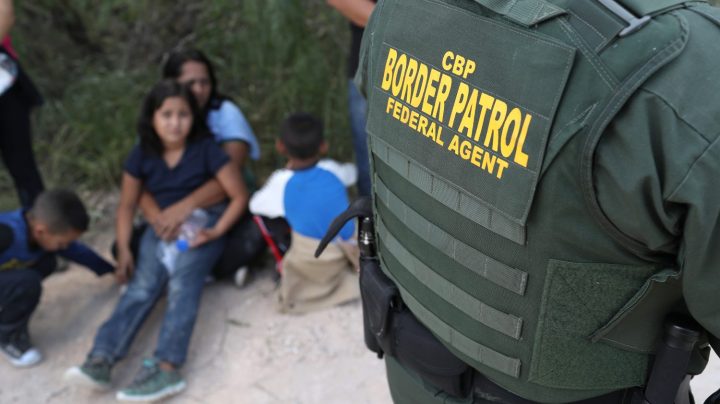After Border Patrol Agent Murders 4 Women, We Should Be Looking at the Agency’s Hiring Practices

Central American asylum seekers wait as U.S. Border Patrol agents take them into custody on June 12, 2018. Photo by John Moore/Getty Images
Over the weekend, news broke that Juan David Ortiz, a US Border Patrol supervisor, confessed to killing four women, all of whom were sex workers. He’s currently being held in Laredo on $2.5 million bond. As more information is revealed about him and the women he targeted, it’s important that we not only talk about the way sex workers are targeted but also discuss the Border Patrol’s hiring practices.
We first learned about Ortiz because of one brave woman, who escaped as they rode in his pickup truck. She found a state trooper and told him where Ortiz lived. He hid in a hotel parking lot and officers arrested him at 2:30 a.m. on Saturday. He confessed to killing two women in September, as well as two more in the five hours between his encounter with the woman who escaped and his arrest, according to The Washington Post. It all took place between September 3 and September 15. “We consider this man to be a serial killer who was preying on one victim after another,” said Martin Cuellar, Webb County Sheriff.
There’s proof that he didn’t target the women randomly, according to the Webb County-Zapata County District Attorney Isidro Alaniz. And this is especially important to note because sex workers – who are unfairly shamed and treated as disposable – are disproportionately the victims of violence. In the United States, violence against sex workers is four times higher than in places where commercial sex isn’t criminalized, according to Urban Justice Center.
Another thing that should inspire more conversations is the Border Patrol. While Ortiz reportedly committed these crimes outside of work hours, it should be cause for concern for the government agency. Ortiz has worked for the Border Patrol for nearly a decade, which has a widespread corruption problem. And some of that can be traced to the agency’s hiring practices. Because it’s trying to meet demands of increased protection at the border, it doesn’t fully vet applicants and tries to move through the process quickly.
When Donald Trump announced the government would hire 5,000 more agents, people warned that the same thing that happened after September 11 would happen again. “The risk is that you do exactly what we did last time. We dramatically ramped up border patrol agents. You gotta hire people quickly, they cut corners. There was a real spike in border patrol corruption,” a video on The Atlantic explained, adding that every month in the past 11 years or so, an average of one border patrol agent has been arrested, mostly for drugs and human trafficking.
And while the border patrol has tried to make some changes in recent years, the effects of these hiring practices are long-lasting.